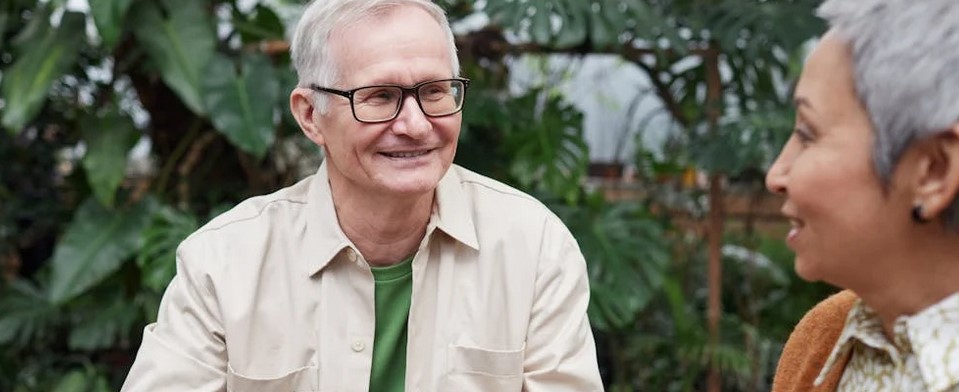Relationships play a significant role in our lives, shaping our emotional well-being, mental health, and overall happiness. Whether they are with romantic partners, family members, friends, or even with yourself, healthy relationships are vital. However, fostering and maintaining these connections is not always an easy feat. It takes ongoing effort, clear communication, self-awareness, and mutual respect.
In this blog post, we’ll explore actionable tips for creating and maintaining healthy relationships—whether you’re deepening a romantic bond or improving your connection with friends and family. Plus, we’ll highlight how counseling can offer additional support for navigating challenging relationship dynamics.
1. Honesty and Communication: The Heart of Every Relationship
Honesty and communication are the cornerstones of any healthy relationship. Without transparency and an open line of communication, misunderstandings and resentment can easily take root. Whether it’s with a romantic partner, family member, or close friend, it’s essential to be honest about your feelings, needs, and expectations.
When conflict arises, approach it calmly and with empathy. Actively listen to the other person’s perspective, and be willing to share your own. Clear and compassionate communication fosters trust and helps prevent small issues from escalating into larger problems.
Remember, it’s not just about talking—it’s about listening, too. Healthy communication is a two-way street that strengthens the emotional bond between individuals.
2. Set Boundaries: Protecting Your Well-Being
Boundaries are critical in every relationship, whether personal or professional. Setting healthy boundaries ensures that you honor your own needs while respecting those of others. Boundaries can be physical, emotional, or mental and should reflect your comfort levels, values, and priorities.
If you feel uncomfortable or overwhelmed by someone’s behavior, it’s essential to communicate those feelings clearly. Likewise, respect the boundaries of others to maintain mutual trust and understanding. When both parties feel safe and valued, relationships can thrive.
3. Practice Empathy: Understanding Each Other’s Perspective
Empathy is one of the most important skills in any relationship. Being able to put yourself in another person’s shoes fosters compassion and understanding, which can help defuse conflict and promote deeper emotional connections.
Practicing empathy requires active listening, tuning into both verbal and non-verbal cues, and responding in a way that demonstrates understanding and care. When you show empathy, you create a safe space for both you and the other person to express yourselves openly, leading to healthier and more fulfilling relationships.
4. Self-Care: Prioritize Your Own Well-Being
The relationship you have with yourself is just as important as your relationships with others. Practicing self-care is essential for emotional well-being and can significantly improve the way you connect with others. When you take care of yourself—physically, emotionally, and mentally—you’re better able to show up as your best self in relationships.
Self-care might include setting aside time for activities you enjoy, engaging in hobbies, meditating, or prioritizing your mental health. The healthier and happier you are as an individual, the more equipped you will be to nurture your relationships.
5. Seek Professional Help: Counseling for Deeper Insights
There is no shame in seeking help when needed. Sometimes, relationships face hurdles that require professional guidance. Whether you’re navigating relationship challenges, dealing with unresolved conflicts, or struggling with communication, seeking therapy can help.
Working with a therapist—whether for individual therapy or couples counseling—provides the tools and techniques needed to improve relationships and emotional well-being. Therapy can also help identify patterns that may be hindering your connection with others. For couples specifically, counseling can provide strategies to enhance communication, resolve conflicts, and strengthen the overall relationship.
At Constantly Healthy Counseling & Coaching, we offer relationship-focused therapy to help couples, individuals, and families cultivate healthier connections. Whether you’re working through personal issues or seeking help to improve communication in a romantic relationship, our experienced team can guide you through the process.
Conclusion: Healthy Relationships Take Effort, But They’re Worth It
Building and maintaining healthy relationships requires consistent effort, honesty, and a willingness to listen and grow. By practicing effective communication, setting boundaries, being empathetic, and prioritizing self-care, you’re laying the foundation for lasting, fulfilling relationships with others—and with yourself.
If you find that you’re struggling to maintain healthy connections or facing challenges in your relationships, Constantly Healthy Counseling & Coaching offers professional therapy services to help you work through these difficulties. Our Winter Park counseling team is here to support you on your journey toward emotional well-being and stronger relationships.
Remember, every healthy relationship requires effort, and seeking support when needed is a step in the right direction. Reach out to us today and let us help you strengthen your connections and improve your emotional well-being.
Related Articles
Start Living Constantly Healthy Today
Same Day Therapy with Weekend & Evening Availability







